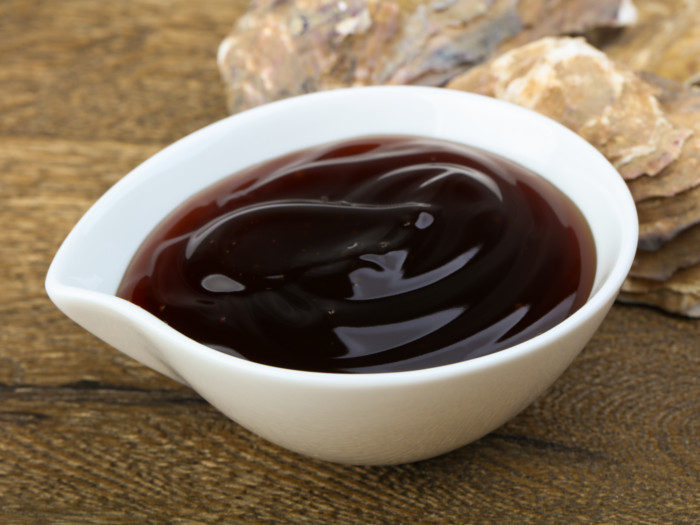Oyster sauce is a delicious and flavorful condiment that can be used on a variety of dishes and provide a number of unexpected health benefits. While you will find it in a number of Asian, especially Chinese recipes, it can also be made at home.
What is Oyster Sauce
Oyster sauce is a popular Chinese sauce. Traditionally derived from cooking oysters, this sauce has been in use for more than a century. This earthy sauce is dark brown, viscous, and has a rich, savory taste that has made it beloved by cooks across China and other parts of Asia. Although it was first developed by accident, by overcooking normal oyster broth for too long, it is now a staple in many cuisines, sauces, marinades, and dishes. In the 19th century, the original sauce was made purely from oysters and their natural broth.
Nowadays, the composition of many oyster sauce varieties has changed. It may include other fillers and ingredients, such as corn starch, salt, sugar, soy sauce or MSG. Initially associated with a Cantonese style of cooking, oyster sauce is now embraced throughout China and is incorporated in other cultural cuisines, including Korean, Thai, and Cambodian food.

Oyster sauce is thick in consistency and has a sweet flavor. Photo Credit: Shutterstock
Serving Size : Nutrient Value Water [g] 80 Energy 51 Energy [kJ] 213 Protein [g] 1.35 Total lipid (fat) [g] 0.25 Ash [g] 7.49 Carbohydrate, by difference [g] 10.92 Fiber, total dietary [g] 0.3 Calcium, Ca [mg] 32 Iron, Fe [mg] 0.18 Magnesium, Mg [mg] 4 Phosphorus, P [mg] 22 Potassium, K [mg] 54 Sodium, Na [mg] 2733 Zinc, Zn [mg] 0.09 Copper, Cu [mg] 0.15 Manganese, Mn [mg] 0.05 Selenium, Se [µg] 4.4 Vitamin C, total ascorbic acid [mg] 0.1 Thiamin [mg] 0.01 Riboflavin [mg] 0.12 Niacin [mg] 1.47 Pantothenic acid [mg] 0.02 Vitamin B-6 [mg] 0.02 Folate, total [µg] 15 Folate, food [µg] 15 Folate, DFE [µg] 15 Choline, total [mg] 3.5 Vitamin B-12 [µg] 0.41 Fatty acids, total saturated [g] 0.04 12:0 [g] 0 14:0 [g] 0 16:0 [g] 0.03 18:0 [g] 0.01 Fatty acids, total monounsaturated [g] 0.07 16:1 [g] 0.01 18:1 [g] 0.07 20:1 [g] 0 Fatty acids, total polyunsaturated [g] 0.07 18:2 [g] 0.06 18:3 [g] 0 20:5 n-3 (EPA) [g] 0 22:6 n-3 (DHA) [g] 0 Sources include : USDA [1]
Nutrition
When it comes to the nutritional content of oyster sauce, it contains high levels of sodium and water, as well as minor levels of other minerals, such as potassium and calcium. There are negligible levels of cholesterol, fat, calories and protein in a normal serving size, which is approximately 1 tablespoon. This particular condiment is relied on for its flavor contribution to a dish, rather than any nutritional value. If anything, the use of oyster sauce should be moderated due to its notably high level of sodium. [2]
Benefits
As you can imagine, when a condiment lacks almost any nutritional value, it is difficult to assign it any real health benefits. That being said, sodium is a critical mineral in our body, as it ensures normal nutrient transport and water balance. A lack of sodium in the body can lead to hyponatremia, so sodium-rich foods like oyster sauce shouldn’t always be avoided. A study in the New England Journal of Medicine found that eliminating sodium to an extreme degree can also cause cardiovascular problems. Generally speaking, however, this condiment is not linked to measurable health benefits. Instead, one should focus on the nutritional value and health benefits of the food being flavored by the oyster sauce! [3]
Uses
As mentioned earlier, oyster sauce is a popular flavoring and condiment in many traditional Asian dishes.
- This sauce is commonly included in chow mein, lo mein, and stir fry dishes.
- In America, one of the most popular Chinese dishes is beef and broccoli, and oyster sauce is almost always a defining flavor in that dish.
- This sauce complements the flavors of broccoli, bok choy, green beans, asparagus, and other hearty vegetables, in addition to boosting most protein dishes.
- Tofu, chicken, pork chops and beef will all benefit from this tangy sauce, particularly when it is combined with garlic, peppers or some other form of “heat”.
The umami flavor is very strong in oyster sauce, particularly when the sauce is made in the traditional form, i.e., purely from oyster extracts, water, and salt. That being said, more commercially popular varieties that also use corn starch, soy sauce, sugar or other fillers are more economical and are viable options for everyday cooking. [4]
